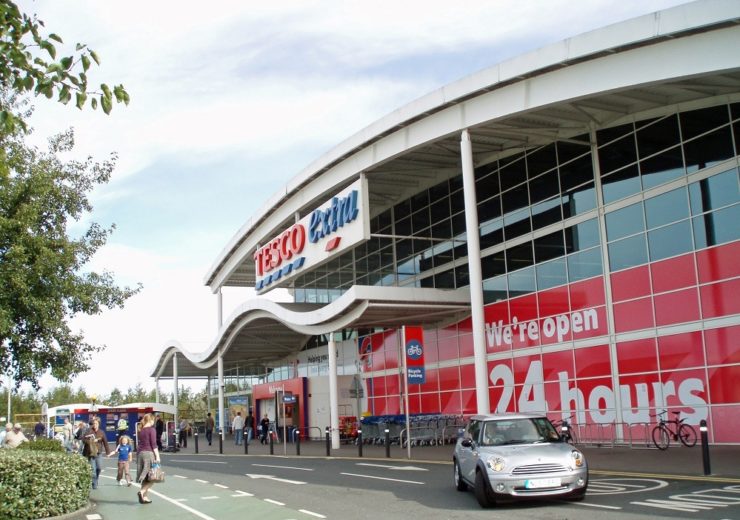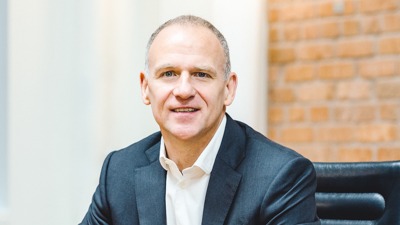The supermarket giant's chief has also reaffirmed the company's 2018 call for a standardised UK-wide recycling system

Tesco CEO Dave Lewis held meetings with the company's external suppliers earlier this month to try and figure out efficient solutions to make their packaging more environmentally-friendly (Credit: Wikimedia)
Tesco CEO Dave Lewis has pledged to ban the sale in its stores of products that use an “excessive” amount of packaging.
In an article written for The Guardian, Lewis said the supermarket chain is also “exploring new technologies” to make sure items such as plastic film lids and food pouches can be recycled.
Currently, 83% of its own-brand packaging meets the UK’s guidelines on what is considered “widely recycled” – meaning 75% or more local authorities collect and recycle these materials across the UK.
The chain has also reduced the weight per unit sold of these products by 31%.
This month, Tesco brought together its partner suppliers to look for efficient solutions to tackle the packaging problem, including one that could require different materials and new designs used for products.
Lewis said: “All of this will take a huge amount of effort. Overhauling every piece of packaging in a business is hard, but it has got to be done.
“The potential to make a positive impact is significant given the breadth of our supply chain.
“We’ve already shown what can be achieved through partnerships with our work on food waste: we are now more than 80% of the way to delivering our commitment that no good food goes to waste in Tesco.
“There’s no reason we can’t achieve the same with packaging.
“For that reason, we’re setting ourselves and our suppliers a challenge.
“The need is urgent, and so from next year we will assess the size and suitability of all packaging as part of our ranging decisions, and if it’s excessive or inappropriate, we reserve the right not to list the product.
“We’ll look at this category by category so every product is treated fairly and we’ll give sufficient time to make these changes.”
Calls made by Tesco’s CEO could have a huge impact, says Greenpeace
Greenpeace UK ocean plastics campaigner Fiona Nicholls has told NS Packaging the challenge from Tesco’s CEO to ditch excessive packaging could have a huge impact.
She said: “As the UK’s biggest supermarket, Tesco is the most powerful.

“So by using that power to challenge suppliers to ditch excessive plastic or be ditched themselves, Tesco could have a significant impact.
“However, there’s much more Tesco could be doing to get its own house in order.
“Its annual plastic footprint is more than 260,000 tonnes and it’s responsible for nearly a third of all supermarket packaging in the UK.
“Tesco needs to publicly set much more ambitious targets for reducing plastic, and invest in reusable and refillable packaging.”
A ‘change’ in the way the recycling system in the UK works
Lewis also called for a change in the way recycling is done in the UK.
The type of waste that can be collected and recycled is currently decided on a council-by-council basis.
Lewis believes there should be a national, government-designed standardised recycling system.
He said: “To close the loop on packaging so it can used, re-used, collected and recycled continuously, more needs to be done.

“We need a standardised national collection and a truly complete and national recycling infrastructure.
“Today, recycling rates vary across local authorities from 65% to 14%. Without a national infrastructure, industry efforts to improve the recyclability of materials used in packaging will not have the impact we need.
“To make such a step change requires considerable work from all stakeholders.
“In January 2018, we called on the government to introduce a national recycling infrastructure and offered to help, including giving space in our car parks for recycling and testing the collection of materials not currently recycled by local councils.
“That invitation stands. The need for action has never been more pressing.”
